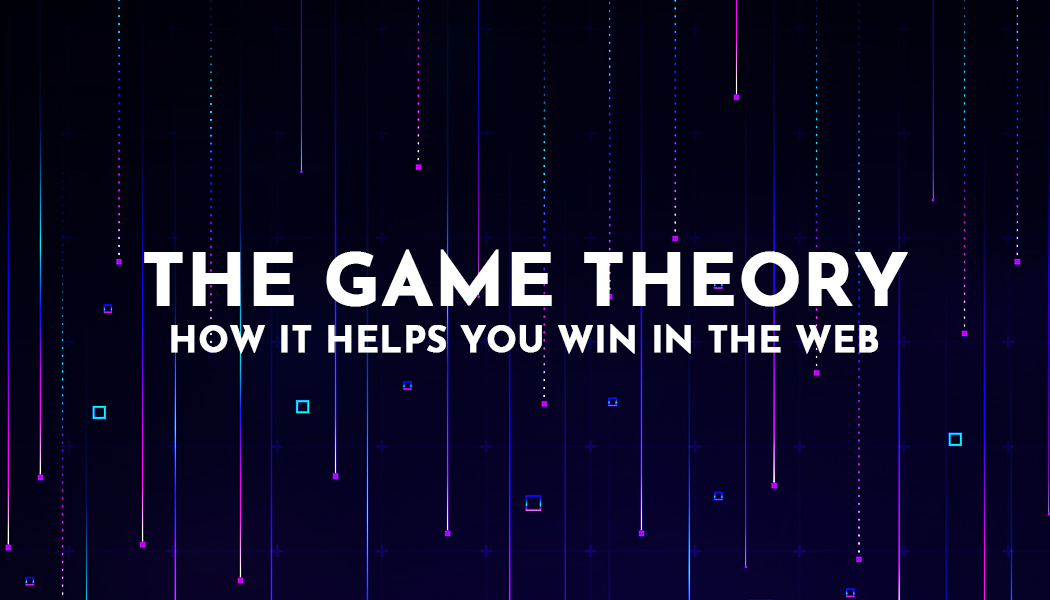The Game Theory: How It Helps You Win in the Web
Was there a moment in your life where you need to develop a strategic plan? Did you try to apply the game theory? Do you have any concept of how it works, and where else can you use it?
The Merriam-Webster dictionary states that a game is an action that involves amusement or to divert the attention. It mostly applies to the common idea we know, such as basketball, poker, and many more. However, game theory is unlike the concept of fun that you can think of. It is all about decision-making.
Defining the Theory
The game theory discusses the formulation of a strategic relationship of two or more players in a setting where there are specific rules and calculated outcomes. While applied in various disciplines, this theory is significantly essential in the world of economics, political science, psychology, and computer studies and development.
To fully grasp the concept of game theory, especially for those pursuing a game design degree, here are some commonly used terms:
- Game: Any situation wherein the outcome is the consequence of the actions done by two or more players.
- Players: The person who makes the decisions within the terms and rules of the game.
- Strategy: A calculated plan that will affect the course of the game.
- Payoff: The form of outcome a player receives. It can be in the monetary means or via utility form.
- Information Set: Any data provided to the players within the game.
- Equilibrium: The moment where the players gave their final decisions, and the result becomes apparent.
Decoding the Assumptions

Game theory applies the hypothesis of rationality and maximization. The concept revolves around the idea that the players decide under a logical perspective, which will push them to utilize their payoffs well while inside the game.
During its first conception in the 1940s by John von Neuman and Oskar Morgenstern, the game theory only tackled zero-sum situations or “games.” It means that no points are placed so that one player automatically wins while the other loses. But as years went by and after numerous revisions, the game theory evolved in non-zero-sum games to eliminate the possibility of a lose-lose consequence.
Isn’t it fascinating?
The game theory also discusses the relationship of various factors using the precision of mathematics. The interactions of the players are looked at and analyzed to predict multiple possible outcomes. The analysis also includes the interpretation of the rewards and losses each player has within the game. Using a specified matrix, players can have accurate recommendations to help them decide during the game.
Nevertheless, questions still arise as to how one can increase the probability of winning. Here are common questions that people ask regarding game theory.
- Can a specific player always have an edge, regardless of how the other players behave?
- Can a game be in a state of equilibrium where all players win if they all make intelligent decisions?
According to theorists, a balanced game may be possible in a perfect setting where each player has an equal probability of winning. However, in a scenario where change is likely to happen, even if both make a significantly correct decision, one player still has a higher chance of winning. This scenario is known as the unbalanced game.
The Limitations
The theory, in highlight, has its flaws, its limitations. One of which is that different results assume that each player will decide in the game ideally. However, if the basis will be real human behavior, it will never be the case. Humans are emotional beings. We decide more on what we feel rather than solely depending on how logic dictates us to do. Therefore, if we add the psychological factor in the calculation, the outcome of the situation based on the game theory may vary more.
Game Theory and Its Applications
Even with its limitations, game theory is still widely used in various fields. And in this digital age, the utilization of game theory makes it possible for you to win on the web. Here two of its many applications that use the internet.
1) Web Game Development
The application of game theory in game development is an apparent scenario as it uses players in the first place. Game theory is all about weighing the odds, which is typical in the creation and execution of web games. Its principles can guide developers to design a balanced game, especially if the game requires decision making. A web board and online card games are excellent representations of game theory. However, if you have games that need more complicated skills, the application of game theory becomes a challenge.
Still, game developers explore the possibility of applying game theory to design and develop online games. While most require complicated decision making, the theory serves as a support in the design of some parts of web games, if not the whole. Because of this scenario, its application creates a well-adapted and balanced game setting and various payoff matrices to allow flexibility of the use of different skills in various game levels.
2) E-Commerce
Game theory in e-commerce is its most popular application. It helped decades worth of industries to flourish and thrive even in the most depressing economic struggles. Because of many success stories, the game theory still sits to be applied even with today’s digital and web age.
If you are an e-commerce seller, all decisions you have, from understanding and changing the prices of your products to the management of your inventory, have an impact on the whole industry. Plus, the perception of the core economic concepts can guide sellers to grasp the idea of managing your online business adequately. Therefore, instead of blindly reacting to your competitors, you can perform sound decision making with game theory.
The game theory revolves under the concept that decisions should come from strategic analysis to battle your competitors. It helps to analyze the result of various competitive scenarios. The game theory most applies to three areas of e-commerce: repricing and inventory investment.
- Repricing
Game theory in e-commerce has a considerable influence on web marketplaces like Amazon, where online retailers can do independent decision making on their products and prices. It significantly affects how the market revolves as pricing online can change rapidly in a circular manner, based on how tight the competition is.
Online sellers can follow the principle of the game theory to go out of the trap where you go in circles to reprice your products. The game theory can help you get a remarkable position in the market without causing a price war with other competitors. It works through careful assessment and analysis of your competitor’s decision-making and moves. Next is by knowing how it will affect the repricing of your products.
Game theory can only be useful against your competitor if you understand and study the price history of a whole listing or by creating your prediction table where the price varies from time to time. Doing this task manually can be quite a challenge or even impossible as repricing needs to be completed in a relatively short time as prices change rapidly. Keep in mind that if you do it slowly, your business will be left in shambles.
It is where an online tool, like Amazon game theory repricer, comes in. An algorithm-based repricer can reprice your products in a quick and timely manner that is reasonably-priced based on the activity of your competitors. If the repricing trend of your products goes well, an excellent repricer tool can even land you a spot in the Buy Box, where customers can see you first before other sellers.
- Inventory Management
Game theory can also be used in other e-commerce areas, such as inventory management. It becomes useful to create model scenarios where online sellers can make strategic decisions on how to store and manage their inventory. The challenge will also apply to how they distribute their product to customers via shipment or delivery. The application of game theory also includes the relationship of suppliers, product sellers, and online platform companies, such as Amazon.
Some repricer tools, such as Seller Snap, allows you to have a good overview of your inventory. They can show which items need replenishment and which things are not moving. Through an intelligent analytics tool, you can make a strategic decision on managing your inventory and, ultimately, your products.
The Bottom Line: The Game Theory is the Tipping Point to Your Success
Through proper utilization of the game theory, you can formulate strategic solutions for what might have been a disaster in a real-world set-up. Whether you are a game developer or an online seller, it can be your guiding principle to analyze problems that may come your way as you journey within your game. It can either build you and help you fix unprecedented situations using a calculated solution to keep everything within your control. Nevertheless, keep in mind that you are Player 1. You always need to step up. Be informed and make sound decisions through careful analysis. After all, remember that whatever your choice is will determine the outcome of the game.




